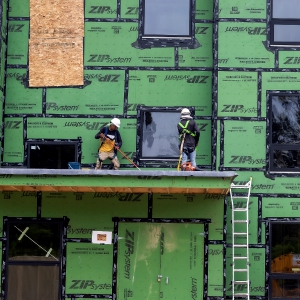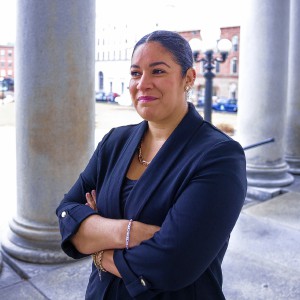NH gubernatorial candidates say no to Dalton landfill but split on other development

The gubernatorial candidates agree that a landfill should not be built close to Forest Lake in Dalton. AMANDA GOKEE—New Hampshire Bulletin
| Published: 08-07-2024 9:18 AM |
Consensus in politics can be rare, but on one issue, the gubernatorial candidates say they agree: The state should not allow a landfill to be built just half a mile from a pristine North Country lake.
But, in interviews with the Bulletin, they split on whether other new landfills should be allowed. The four top candidates – Republicans Kelly Ayotte and Chuck Morse, and Democrats Cinde Warmington and Joyce Craig – first told WMUR in June they opposed the landfill proposed near Forest Lake in the 900-person town of Dalton.
In wide-ranging conversations, they expressed concern about the out-of-state trash dumped in New Hampshire to the tune of about 900,000 tons a year and offered their plans for addressing PFAS pollution in the state.
The parties will choose their candidates through primaries on Sept. 10. The top vote-getters from each side will then face off in the general election on Nov. 5.
They’re vying to replace Gov. Chris Sununu, who, after winning four terms and eight years in office, has decided not to seek reelection. In 2022, Sununu vetoed a bill that would have tightened restrictions on siting landfills near water bodies, saying the existing regulations – which allow landfills just 200 feet from the water – were “rigorous and robust.”
During a 2022 debate, Sununu said there were “smart and safe” ways to build the landfill proposed in Dalton. Residents have voiced fears that the project from the Vermont-based Casella Waste Systems, which the state recently found failed hundreds of times to keep liquid pollution to required levels and file mandatory reports at its nearby Bethlehem facility, would corrupt their state park and clean lake.
For those voters and others concerned with waste, the 2024 election presents an opportunity to change the tone on these issues in the highest office in the state. It’s also a chance to shake up the Senate, which has halted efforts from the House to limit out-of-state trash, prohibit the private ownership of landfills, and put a pause on new landfill development.
Landfills are one of those rare political issues that have united residents and lawmakers across the political spectrum. At a rally against the Dalton landfill in July, both Republican and Democratic candidates for the State House stood among protesters.
Article continues after...
Yesterday's Most Read Articles
 Restaurant owner settles lawsuit against Franklin, but didn’t get what she sought
Restaurant owner settles lawsuit against Franklin, but didn’t get what she sought
 Trump’s order to end homelessness could overwhelm New Hampshire’s mental health system, advocates say
Trump’s order to end homelessness could overwhelm New Hampshire’s mental health system, advocates say
 With Steeplegate still held up in court, city privately debates public investment
With Steeplegate still held up in court, city privately debates public investment
 Former Castro’s building to hold apartments and the cigar shop will return, eventually
Former Castro’s building to hold apartments and the cigar shop will return, eventually
 ‘Peace of mind’: As New Hampshire nixes car inspections, some Concord residents still plan to get them
‘Peace of mind’: As New Hampshire nixes car inspections, some Concord residents still plan to get them
 Education commissioner nominee Caitlin Davis receives unanimous bipartisan support on eve of confirmation vote
Education commissioner nominee Caitlin Davis receives unanimous bipartisan support on eve of confirmation vote
Among those rally-goers was Cinde Warmington, the lone Democrat on the Executive Council, who has made solid waste reform a central issue in her run for governor. She recently launched a TV ad touting her trash chops.
On the amount of out-of-state trash coming into New Hampshire, Warmington said in an interview, “I will absolutely do something to change that … New Hampshire should not be the dumping ground of New England.”
She also said that despite a state law that prevents certain toxins in packaging, the flow of trash from states without those restrictions means those contaminants end up here anyway. She is also concerned by PFAS contamination, which leachate – the liquid pollution from landfills – can be a vector for.
As an executive councilor, and now as a candidate for governor, she has called for a moratorium on landfills, citing the fact that the state has enough capacity to last until 2034.
This pause, she said, “would give us some time to evaluate and maybe take appropriate steps to reduce the amount of waste that we’re generating, say by further investments in recycling and other efforts to reduce waste.”
Joyce Craig, the former mayor of Manchester and the other top Democrat in the race, said she supports “a moratorium on landfills while the state goes through our process of updating our regulations.”
The state’s updates to its landfill regulations are set to be finalized sometime this fall. Critics have said the solid waste industry had an outsized role in shaping the draft regulations, though these may be changed in response to public comments.
One factor fueling this criticism is that the draft regulations were presented by the Department of Environmental Services for guidance to a Waste Management Council with a quarter of its members directly from industry and missing five seats, including in public interest and health.
In response to a later question for clarification, Will Karcz of the Craig campaign said she supports a pause on new landfills until a full council could review the rules. Asked if that means she would direct DES to update the rules once the council was filled, since it’s likely the current updates will be finalized under Sununu, Karcz said, “Joyce would consider that.”
On whether she would do anything to curb out-of-state trash, Craig said, “it’s something that I would absolutely, absolutely look into. Again, with this moratorium, we need to study the process,” adding that the state should not be a “dumping ground” for others.
The Republican candidates said they’re open to new landfills in the state, besides the new one being proposed in the North Country.
Kelly Ayotte, the former U.S. senator and state attorney general, said she would consider new landfills in the state on a case-by-case basis.
“Every project is specific, and I’d have to look at … what those projects are before I could make a decision on that, and what they’re using them for,” she said. “But I can tell you that certainly the one in Dalton I wouldn’t support.”
As for the issue of trash from other states, Ayotte said she would focus on what is beneficial to New Hampshire.
“As we look at landfills throughout the state, I mean, obviously, I want to make sure that they make sense for the state of New Hampshire,” she said, “and the priority should be not being a collector for trash from Massachusetts or other out-of-state places, it should be for New Hampshire. So, of course, that’s important to me.”
Chuck Morse, a Republican who formerly served as president of the state Senate, said his opposition to the Dalton landfill is driven by “its proximity to the water source there.” As for other projects, he said, “I wouldn’t oppose citing any new landfills, but I want to make sure we protect the people in New Hampshire first.”
Morse said, under his administration, out-of-state trash would be “something we take a look at. … Taking in trash from Massachusetts does not seem to be the right thing to do for the people in New Hampshire.”
Efforts to curb out-of-state trash may face obstacles from the Constitution’s Commerce Clause, which sets up challenges for laws deemed to discriminate against out-of-state interests. Lawmakers considered ways to work around this in the last legislative session, including state-owned landfills.
PFAS – or per- and polyfluoroalkyl substances – are a class of man-made chemicals linked to some cancers, developmental problems, high cholesterol, and other health issues. They are widespread in the state but have especially impacted communities near acute sources of contamination, such as Saint-Gobain Performance Plastics in Merrimack and Pease Air Force Base on the Seacoast.
Candidates shared similar rhetoric on how they would prevent and respond to PFAS pollution.
Asked how he would prevent further contamination of drinking water in the state, Morse pointed to his work helping build public drinking water supplies, which he said will have benefits beyond addressing PFAS pollution. Morse worked on water issues in the Legislature and used to chair the Drinking Water and Groundwater Trust Advisory Commission.
“I think there’ll be other contaminants that come along,” he said. “So I think the key is to build public supplies that we can take care of, and I think that’s the future in New Hampshire, but I also think there’s a bigger picture there, that we can use that to help build housing in New Hampshire by bringing new infrastructure and creating density, which I think is the way we should be doing it.”
Ayotte said she would be “strong” on holding polluters responsible. “I know the people of Merrimack have suffered with this,” she said, also pointing to those near Pease, “and they’re going to need help and other places in the state are, as well. And many people have water wells that are contaminated with PFAS.”
“I want to be certainly strong on enforcing our laws and our water contamination (rules), and I want to make sure that we also hold polluters accountable, those who have introduced pollution into our water stream,” she said. “I certainly would be strong in holding them accountable and making sure that our water is safe and clean for everyone to drink.”
Craig said she would look at regulations to make sure residents have access to clean water. She also leaned on her record as mayor, saying she “worked with the waterworks department here to preserve thousands of acres around our water source” to ensure that water stayed clean.
She said she would work to prevent something like the Saint-Gobain pollution from happening again, but that she would be prepared to act if it did.
“We are learning the hard way what happened with Saint-Gobain and the issues that we’ve seen in Merrimack with residents working there,” she said, “and we need to hold these bad actors accountable and make sure that we have policies in place to prevent this from happening again. And if, for whatever reason, it does, these companies need to be held accountable.
Warmington pointed to efforts in the Legislature to reduce PFAS contamination in landfills and restricting what products can use the chemicals. “We really need to drill down on this, attack this problem,” she said. “There have been efforts, but … there’s much more to be done in that area.”
In terms of holding companies accountable for their pollution, she said, “we have a bit of a model there around Saint-Gobain,” pointing to its agreement with the state to provide bottled water and more permanent drinking water solutions to residents.







 New Hampshire school phone ban could be among strictest in the country
New Hampshire school phone ban could be among strictest in the country Concord became a Housing Champion. Now, state lawmakers could eliminate the funding.
Concord became a Housing Champion. Now, state lawmakers could eliminate the funding. ‘A wild accusation’: House votes to nix Child Advocate after Rep. suggests legislative interference
‘A wild accusation’: House votes to nix Child Advocate after Rep. suggests legislative interference  Sununu decides he won’t run for Senate despite praise from Trump
Sununu decides he won’t run for Senate despite praise from Trump
